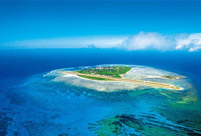


A screenshot ot the article by Ambassador Liu Xiaoming published on the Financial Times on May 9, 2016. [Photo: gov.cn]
On 9 May, the Financial Times and its website published a signed article by Ambassador Liu Xiaoming entitled " Who is really behind the tensions in the South China Sea? ". The full text is as follows:
Sir, Senator John McCain made ungrounded accusations about China’s policies and actions with regard to the South China Sea in his op-ed “America needs more than symbolism in the South China Sea”(April 13). His comment pays no regard to facts and reflects prejudice and hostility against China.
Who is “militarising” the South China Sea? Senator McCain points at China, but the US has been intentionally flexing its muscles in the region with its forward-deployed military forces.
In recent years, US military jets and warships in the South China Sea have conducted frequent close-in reconnaissance in the adjacent waters and air space of China’s islands and reefs. This has been accompanied by targeted joint military drills which have significantly raised tension in the South China Sea.
Senator McCain urges the US to launch a robust “freedom of the seas campaign”, as if the freedom of navigation in the South China Sea had been under immediate threat.
The reality is that more than 100,000 vessels pass through the South China Sea every year. In no single case has freedom of navigation been affected. The freedom of navigation is in fact the “freedom” for the US to assert its maritime dominance in the South China Sea and challenge the sovereignty, security and maritime rights of others.
This is in fact a licence for the US to do whatever it wants. Such a licence poses the biggest threat to regional peace and stability as well as the real freedom of navigation in this region.
Who is challenging the international law? Senator McCain appeals to his government to work with regional allies and partners to “counter Chinese behaviour that is in violation of international law”. Senator McCain needs to specify which clauses in the international laws China has violated.
China has kept a strong commitment to international law. After years of negotiation and consultation, China has signed border treaties with 12 of its 14 neighbours on land, and has completed maritime delimitation of the Beibu Bay with Vietnam.
International law allows China the right to reject and choose not to participate in the South China Sea Arbitration unilaterally initiated by the Philippines. Back in 2006, China made a declaration in accordance with Article 298 of the UN Convention on the Law of the Sea (UNCLOS), excluding disputes such as those on maritime delimitation from compulsory arbitration. More than 30 other countries, including the UK, have made similar declarations.
China’s decision is also consistent with a series of bilateral agreements with the Philippines and Article 4 of the DOC, the Declaration on the Conduct of Parties in the South China Sea signed in 2002 between China and 10 Asean nations. Since Senator McCain places stress on complying with international law, perhaps he can explain why the US has chosen not to join UNCLOS?
As a sovereign state, China has the legitimate right, as empowered in the UN Charter, to carry out construction in its own islands in the South China Sea and fulfil its international obligations. Ironically, the US is still refusing to sign the UNCLOS and hides behind the rhetoric of safeguarding international law.
As an old Chinese adage goes, the offender complains first. There is also the quotation: “A lie gets halfway around the world while the truth is putting on its shoes.” This is the danger that springs from articles such as that authored by Senator McCain.
China is a responsible country and a staunch force for world and regional peace. China will work with all other countries, as it has always done, to build the South China Sea into a sea of peace, a sea of friendship and a sea of co-operation.
 Beijing Style: ready for bare legs
Beijing Style: ready for bare legs Century-old station sees railyway evolution
Century-old station sees railyway evolution Amazing scenery of Xisha Islands
Amazing scenery of Xisha Islands Enthusiasts perform Kung Fu at Wudang Mountain
Enthusiasts perform Kung Fu at Wudang Mountain Stunning photos of China's fighter jets in drill
Stunning photos of China's fighter jets in drill Monk's mummified body to be made into a gold Buddha statue
Monk's mummified body to be made into a gold Buddha statue Asia's longest and highest suspension bridge to open to traffic
Asia's longest and highest suspension bridge to open to traffic China's first interactive robot looks like a beauty
China's first interactive robot looks like a beauty Vietnamese Su-30 fighters fly over Nanwei Island in South China Sea
Vietnamese Su-30 fighters fly over Nanwei Island in South China Sea Top 20 hottest women in the world in 2014
Top 20 hottest women in the world in 2014 Top 10 hardest languages to learn
Top 10 hardest languages to learn 10 Chinese female stars with most beautiful faces
10 Chinese female stars with most beautiful faces China’s Top 10 Unique Bridges, Highways and Roads
China’s Top 10 Unique Bridges, Highways and Roads Duterte may shift Manila’s foreign policy
Duterte may shift Manila’s foreign policy Islamic food, water, toilet paper cause concern about extremism
Islamic food, water, toilet paper cause concern about extremism Superfans debate what it is about the animated family that China loves so much
Superfans debate what it is about the animated family that China loves so much As Periscope-like apps go viral among young people, calls go out for greater supervision
As Periscope-like apps go viral among young people, calls go out for greater supervisionDay|Week